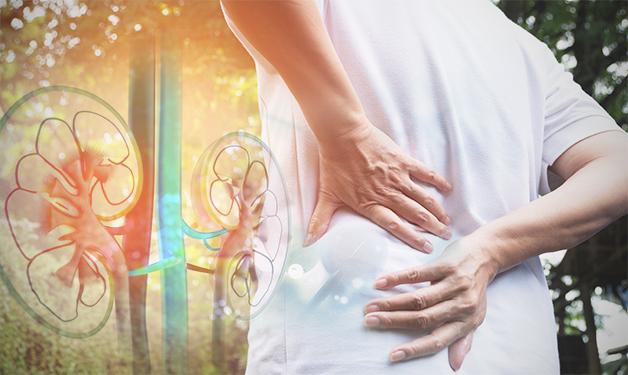
They help our bodies filter waste and produce vital hormones. Our expert explains how to love your mighty kidneys back.
They are fist-sized and bean-shaped, and they do a lot of heavy lifting when it comes to maintaining our overall health. This March 8 is World Kidney Day. In honour of the mighty kidney, we asked the director of basic science research at the VGH Stone Centre and Vancouver Coastal Health Research Institute researcher Dr. Dirk Lange to share a few words of advice about keeping these two defenders in tip-top shape.
Q: What do kidneys do and how important are they to my overall health?
A: They are very important and they do a lot to keep the body strong. The main function of the kidneys is to remove waste and excess fluid from our bodies through the production of urine. Overall, this helps to regulate and maintain a healthy balance of important chemicals throughout the body. Each day, the average person’s kidneys filter almost 200 litres of blood—or the equivalent of the average fish tank—to remove waste products and extra water. Kidneys make sure that healthy chemicals—such as potassium, phosphorus and sodium—remain in our bloodstream and the rest of the body in the correct quantities. Too much or too little of these chemicals can have serious negative effects on our health. Kidneys also release hormones, support bone health and regulate blood pressure.
Q: I am worried that I might be putting my kidneys at risk. What habits could be hurting them?
A: Smoking and obesity are two things that can put people at greater risk of developing chronic kidney disease. On the other hand, everything that is good for our overall health is also good for our kidneys. It is a good rule of thumb to drink plenty of water, eat a balanced diet and exercise regularly to maintain overall kidney health.
Q: What is chronic kidney disease and how is it diagnosed and treated?
A: Chronic kidney disease is the gradual loss of kidney function. If left untreated, it can lead to kidney failure. At advanced stages, the body is no longer able to remove waste products and excess electrolytes and fluid from the blood. It can be diagnosed through blood and urine tests, imaging of the kidneys or a kidney tissue biopsy. Patients with chronic kidney disease can be prescribed medications and special diets. In more severe cases, they may need to go on dialysis—when a machine does the work of the kidneys and removes waste products and extra fluid from patients’ bodies—or receive a kidney transplant.
Q: What are the common conditions that can lead to kidney disease?
A: There are many different conditions that can put someone at higher risk of developing chronic kidney disease. Type 1 and 2 diabetes, high blood pressure, cardiovascular disease, a genetic predisposition, recurring kidney infections and prolonged obstruction of the urinary tract from such things as kidney stones are all risk factors. Check with your doctor if you are concerned about your kidneys.
Q: What are kidney stones and how can I avoid them?
A: Kidney stones are crystals that form in the kidneys and can affect any part of the urinary tract. When concentrations of chemical elements in our bloodstream and urine exceed their normal levels, some chemicals, such as calcium and oxalate, form crystals that can grow into larger kidney stones. Drinking eight ounces of water eight times per day is a good guideline to help prevent the buildup of the chemicals that cause kidney stones.



